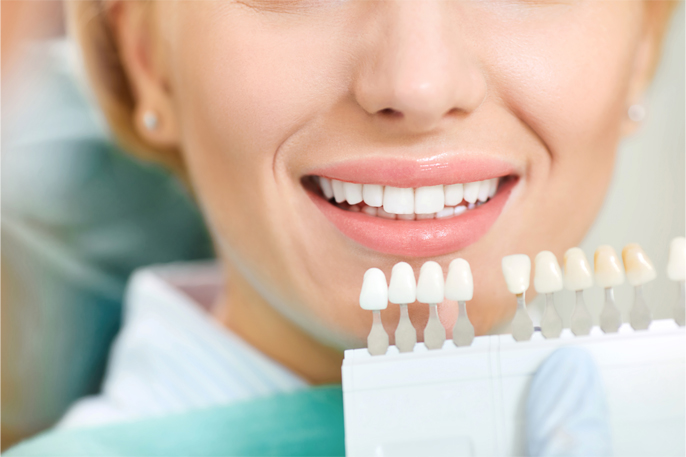The human mouth consists of several distinct components, each with its unique functions. It’s a marvel of biological engineering, serving a multitude of essential functions that go far beyond mere communication. This intricate structure plays a vital role in our ability to eat, breathe, and express our emotions. In this blog, we will take a closer look at the anatomy of the human mouth and the various components that make it such a versatile and indispensable part of our bodies.
Continue reading “The Anatomy of the Human Mouth | Fayetteville, GA”Bad Breath Happens, Here’s Why | Fayetteville, GA
Even if we brush, floss, and use mouthwash before bed, we will likely wake up with less-than-favorable breath. Having halitosis, or bad breath, is normal- it happens to all of us. There are so many ways we can develop bad breath, so it’s important to understand what contributes to it, and how we can go about mitigating our chances of having and retaining the bad breath.
Bad habits may seem like an obvious contributor, but many who practice these habits, have become accustomed to or disassociated from the connection between them. Habits such as smoking, chewing tobacco, and failing to maintain a proper oral hygiene routine will all contribute to bad breath.
The next one is food- onion, and garlic being the most notable two foods that play a part in our breath. Essentially, any food that one might find to smell bad (despite how delicious it may be), can contribute to bad breath. Then, there are bacteria. If you suffer from dry mouth or don’t drink enough water to generally keep your mouth moist and recycle food particles throughout the day, bacteria will begin to take over. Oral bacteria feed on the sugars left behind when we eat or drink sugary or acidic foods, producing foul-smelling acids in kind.
A lesser-known cause of bad breath is our tonsils. Our tonsils have deep holes called crypts that are commonly associated with bad breath. These crypts can harbor bacteria that is typically described as smelling like cheese which, you guessed it, gives you bad breath.
To schedule an appointment or learn more about the beautiful smiles Dr. Sukari McMiller has created visit us online today at www.dreamworksdentalcare.com.
Dr. Sukari McMiller proudly serves patients from Fayetteville and all surrounding areas.
Tooth Discoloration And You: What To Know | Fayetteville, GA
Tooth discoloration can target anyone, no matter how well we perform our oral care routine. Tooth discoloration isn’t something that happens overnight, it is the accumulation of years of simply being human. Thankfully, however, when we understand the main culprits of discoloration, we can work to mitigate our risk of it, and prolong our need or eventual desire for whitening treatments. Here are some of the most common culprits of tooth discoloration:
– One of the most common ones is a poor oral care routine. When we don’t employ proper brushing and flossing, we allow the residue from what we consume to remain on our teeth, working to subtly discolor them over time. If you notice hard-to-remove brown patches on or between your teeth, it may be tartar buildup, which creates obvious discoloration and needs to be removed by your dentist.
- Any dark liquid such as red wine, coffee, soda, or even hot chocolate can discolor our teeth. Be mindful of the amount of dark-colored foods and drinks if you want to avoid discoloration, and brush 30 minutes after consumption to mitigate risk.
- Tobacco in any form is another common contributor to discoloration. It commonly produces a yellow hue on the teeth that can’t be easily removed by our twice-daily routine.
- The excessive use of fluoride, believe it or not, can also discolor our teeth. If we excessively use fluoride-infused oral care products it can be too much, causing streaking or leaving behind a brown outline around your teeth.
- Enamel decay is a consequence of a poor oral care routine. Enamel protects our teeth, but it can be worn down over time and as it does, you will notice a variety of stains and changes to your teeth like white spots or yellow-brown streaks.
Help your pearly whites shine by taking these preventative measures:
– Brush 30 minutes after eating or drinking
– Floss twice daily
– Reduce sugary foods and drink intake
– Add calcium to your diet
-Don’t use tobacco
To schedule an appointment or learn more about the beautiful smiles Dr. Sukari McMiller has created visit us online today at www.dreamworksdentalcare.com.
Dr. Sukari McMiller proudly serves patients from Fayetteville and all surrounding areas.-
What To Know About Tooth Extraction | Fayetteville, GA
The thought of visiting the dentist for a tooth extraction can put fear into anyone; it’s pretty much one of the last things we want to experience at the dentist. Yet, severe tooth decay, an infection, a cracked tooth, gum disease where the bone is compromised, and impacted wisdom teeth are more detrimental to your quality of life and oral health. The momentary anxiety and recovery time are well worth it when compared to the health complications of a tooth that needs to be extracted.
Extractions generally fall into two categories – simple extraction, and surgical extraction.
Simple:
When you need a simple extraction, you will likely be provided general anesthetic to the area of your mouth where the extraction will take place. Once completely numb, your dentist will gain a grip on your tooth using special instruments to physically loosen the tooth to the point where it can be easily pulled. Once completed, you may be prescribed antibiotics and a gentle means of cleaning the area to mitigate the chance of infection as the socket heals. It’s important to not allow food particles to get healed over in the socket, as they will eventually rot and require removal later on.
Surgical:
Surgical extractions, as you might imagine, are more involved. They require an oral surgeon and the use of anesthesia because these extractions usually occur below the gum tissue, or require cutting the surrounding tissue or the bone itself to remove. Just like with a simple extraction, you may be prescribed antibiotics and a gentle means of cleaning the area to mitigate the chance of infection as the socket heals. Again, it’s important to not allow food particles to get healed over in the socket, as they will eventually rot and require removal later on.
If you do require an extraction, discuss your concerns and questions with your dentist, and gain an understanding of the healing process, so you can arrange a driver or request time off work ahead of time if necessary. Your dentist will provide you with all the information you need to know prior to and following your extraction to ensure you understand what you are entering into, and can assist you through the recovery process.
To schedule an appointment or learn more about the beautiful smiles Dr. Sukari McMiller has created visit us online today at www.dreamworksdentalcare.com.
Dr. Sukari McMiller proudly serves patients from Fayetteville and all surrounding areas.
A Brief Guide On Dental Crowns | Fayetteville, GA
A damaged tooth can be the result of, or invite decay, causing the tooth to become frail. When that happens, the application of a dental crown can help protect it from further exposure to cavity-inducing circumstances. Crowns help restore the strength, longevity, and durability of the tooth and cover any discoloration that may have occurred as a result of its decay. It will improve your overall oral health and restore your beautiful smile. Here are a few more benefits of employing a dental crown:
- Improve the look of broken, cracked, or replace lost teeth
- Dental crowns are made of porcelain, and look natural against other teeth
- Dental crowns are stain resistant and won’t discolor when properly cared for
- Crowns can last up to 15 years and won’t fall out of place
- Dental crowns are restorative and preventive
- They decrease the amount of bacteria build-up that can lead to the loss of more teeth
To schedule an appointment or learn more about the beautiful smiles Dr. Sukari McMiller has created visit us online today at www.dreamworksdentalcare.com.
Dr. Sukari McMiller proudly serves patients from Fayetteville and all surrounding areas.
Get Straight Teeth With Traditional Or Alternative Braces | Fayetteville, GA
Traditional braces have long been the optimal treatment for gaining the beautifully straight smile we crave. Yet, they have long contributed to a lack of confidence in adolescents and adults alike as they move through the process of straightening their teeth which can take months or even years. Thankfully, for a majority of patients, traditional braces are no longer the only option. Technological advances have allotted for a variety of other methods if your particular misalignment allows for it, as confirmed by your dentist or orthodontist.
Invisalign is probably the most recognized alternative, as it was one of the first on the market. Invisalign is a series of customized clear plastic aligners, each molded to accommodate the straightening of your teeth over time. Each set of aligners advances your progress while remaining discreet for all-day wear. It reduces the amount of care required for traditional braces, doesn’t have brackets or wires, there’s no dental glue to scrape off in the end, and has fewer check-ups with the dentist. Now that this technology has become more widespread, there are other companies providing clear aligners, so Invisalign is no longer your only option, meaning you can shop around to find an aligner covered by insurance or more aligned with your budget.
If you aren’t a candidate for an alternative means of straightening your teeth, however, you can ask your dentist about clear or white brackets for traditional braces. Believe it or not, swapping the traditional silver tone for a more neutral or natural color makes a big difference in how pronounced your braces appear. While you may not be able to avoid braces, you can boost your confidence with this alternative.
Of course, there are pros and cons to every method, but it’s important to understand your options as you consider making the investment to straighten your teeth. Be sure to consult with your dentist about how pronounced your misalignment is, and if you are a candidate for clear aligners before you make your final decision. It’s easier to do your research ahead of time than try to backtrack later.
To schedule an appointment or learn more about the beautiful smiles Dr. Sukari McMiller has created visit us online today at www.dreamworksdentalcare.com.
Dr. Sukari McMiller proudly serves patients from Fayetteville and all surrounding areas.
The Five Stages of Tooth Decay | Fayetteville, GA
Tooth decay is not something to take lightly. In fact, it’s something to remain on the lookout for, as even those with a great oral care routine can experience tooth decay. Thankfully, the first stage of decay is the easiest stage to recognize and begin to take corrective actions. Yes, you can reverse decay with early detection! Here are the five stages of tooth decay:
Stage One: White Spots
In this stage, the tooth begins to show signs of strain from attacking sugars and acids. White spots will begin to materialize just below the surface of the enamel. They are a telltale sign that demineralization of the tooth has begun. But, it can be easy to miss because they’re likely to occur on you or your child’s molars first. Your dentist should be able to catch such warning signs during regular cleanings.
In the first stage of decay, this can be repaired without the need for extraction. Whether you’re a child or an adult, the application of fluoride via fluoride treatments, your toothpaste, salivation, the foods you eat, and even the local water supply can help re-mineralize the tooth and stop a cavity from penetrating through the enamel and reaching its second stage.
Stage Two: Enamel Decay
This is the beginning of the end for the surface enamel that is being attacked. Once a cavity breaks through the surface of the enamel, there is no turning back, and you or your child will need to have the cavity corrected with a filling. Teeth erode from the underside outward, so the outer enamel will still be intact for the first half of this second stage, but will be the next target.
Stage Three: Dentin Decay
Stage three is where you will notice a serious cause for concern if you or your dentist have missed the first two. This is the stage where patients begin experiencing pain, that is because the cavity begins to eat away at the second level of tooth material that lies beneath the enamel called dentin. A filling can still be used to stop bacteria from assaulting the tooth to prevent the cavity from reaching the tooth’s pulp.
Stage Four: Involvement of The Pulp
Once the infection reaches the pulp it’s going to hurt a lot. This is a serious point in the progression of decay where a root canal or full extraction will be evaluated by your dentist as the next phase of action.
Stage Five: Abscess Formation
At this point, the infection has reached the tip of the root and exited the tip of the tooth’s structure. It has infected the surrounding tissues and possibly the bone structure. You will likely experience swelling and severe pain. In children (as well as adults) an abscess can be fatal if not appropriately dealt with immediately.
Cavities don’t happen overnight. In the early stages, regular visits can stall and reverse the progression of decay, so it’s important to pay regular visits to the dentist. Catch cavities before they catch up to you by keeping the stages of decay in mind as you continue to care for your and your child’s teeth.
To schedule an appointment or learn more about the beautiful smiles Dr. Sukari McMiller has created visit us online today at www.dreamworksdentalcare.com.
Dr. Sukari McMiller proudly serves patients from Fayetteville and all surrounding areas.
What To Do If You Have Cracked a Tooth | Fayetteville, GA
There are so many ways we can crack a tooth, and it’s likely we don’t see it coming, and that it will hurt. When you crack a tooth, it’s more likely than not that you will know. Here is what you are likely to experience when you crack a tooth, and what you should do about it.
You’re going to feel it
When you bite into something like a popcorn kernel that has the potential to crack a tooth, the first thing you will do is hear it. Then, you’re going to feel the object that cracked it either lodged into the new crack or in your mouth before you experience pain. This all occurs in a second, so you may run to the nearest mirror next to double-check.
What to do
If you have in fact cracked a tooth, call your dentist immediately. Your mouth may begin to bleed, in that case, utilize a gauze to contain the bleeding and call your dentist. If tooth fragments or the whole tooth falls out, preserve it in a jar with a splash of cold cow’s milk, water, or saliva and bring them to your appointment. It’s also a good idea to apply a cold compress or ice pack to the site to reduce swelling and pain.
Ideally, your dentist will be able to see you for an emergency appointment sooner than later, but if you do have to wait, maintain your pain levels, and keep your tooth or fragments for when he or she can attend to you.
To schedule an appointment or learn more about the beautiful smiles Dr. Sukari McMiller has created visit us online today at www.dreamworksdentalcare.com.
Dr. Sukari McMiller proudly serves patients from Fayetteville and all surrounding areas.
Understanding TMJ Disorder | Fayetteville, GA
TMJ stands for Temporomandibular Joint Disorder, and it can seriously impact our quality of life. If you experience consistent jaw pain, jaw pain in the morning, jaw clicking at the joint, and/ or experience frequent headaches, it may be due to existing or developing TMJ disorder. Essentially, when you have a problem with the jaw muscles or joints in your jaw, that is when these symptoms can start to appear. Here are some ways you may be unintentionally contributing to the onset of TMJ disorder.
Bruxism is the official term for grading and clenching of the teeth. People who clench or grind their teeth commonly wake up with jaw pain and wear the cartilage lining their temporomandibular joint over time. Similarly, chewing gum or biting our nails can also damage our teeth and contribute to TMJ disorder over time.
Misaligned teeth are another common cause, as it can cause one to consciously or unwittingly chew on a dominant side of their mouth, contributing to undue stress on that side of the jaw. Similarly, a prior jaw fracture or injury can contribute to symptoms such as headaches, ear pain or ringing, and dizziness. If you suffer from these symptoms and have yet to be diagnosed with TMJ disorder, it may be time to consult with your dentist about your concerns.
To schedule an appointment or learn more about the beautiful smiles Dr. Sukari McMiller has created visit us online today at www.dreamworksdentalcare.com.
Dr. Sukari McMiller proudly serves patients from Fayetteville and all surrounding areas.
Soda Impacts Your Smile: Here’s How | Fayetteville, GA
We can be the absolute best at maintaining our daily oral health routine, and the negative effects of soda will still catch up to us. It may not seem like a big deal; we consume sugary, acidic foods every day, but soda is a special exception. Here are some things we think you should consider before reaching for that next can or bottle of soda, and when evaluating your soda consumption habits.
Sugar Content
More than most beverages, soda contains a high amount of sugar. Sugar can coat our teeth or get stuck in the hard-to-reach spaces of our mouths, allowing sugar-eating bacteria to feed off it. These bacteria in turn excrete acid, and that acid is what contributes to tooth decay. The more sugar we consume, the more sugar the bacteria can consume, escalating our risk of decay.
Acidity
Sugar-eating bacteria can excrete acid, but there is also acid in the beverage itself. Diet sodas are no exception as they contain the same amounts of phosphoric and citric acid as non-diet varieties, even if they don’t contain the same amount of sugar. Acidic foods eat away at our protective enamel, leaving a tooth prone to decay.
Food Dye
A tooth can be stained by artificial food dyes such as caramel color, Yellow #5, etc. While coffee and other dark-colored beverages and foods may contribute to tooth staining as well, many of us consume a lot of soda, making it a primary culprit. If you want the flavor and fizz of something other than water, start swapping your soda with sparking flavored water, for all the fun without the stains.
To schedule an appointment or learn more about the beautiful smiles Dr. Here’s How McMiller has created visit us online today at www.dreamworksdentalcare.com.
Dr. Sukari McMiller proudly serves patients from Fayetteville and all surrounding areas.






